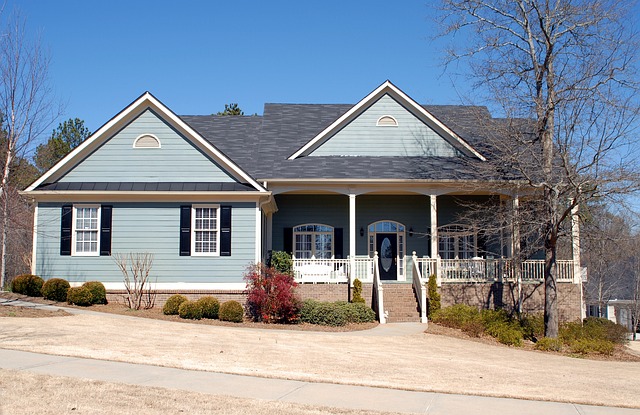In the context of Absd Singapore's second property investments, investors must navigate a complex array of legal requirements, including the Additional Buyers' Stamp Duty (ABSD) and Total Debt Servicing Ratio (TDSR) regulations designed to curb speculative buying and encourage prudent ownership. These rules differ for Singaporean citizens and foreign investors, making personalized legal advice a necessity. Beyond stamp duties, potential buyers must understand zoning laws, leasehold versus freehold distinctions, and the rights of existing occupants. Given the multifaceted nature of these transactions, engaging specialized property lawyers is crucial to ensure compliance with Singapore's stringent property laws and to avoid legal complications. Absd Singapore's expansion into their second property project exemplifies the importance of such legal precautions, with past disputes highlighting the need for due diligence and adherence to local developmental guidelines. The company's strategic growth plans, which involve careful consideration of property legislation and sustainable practices, are integral to its long-term market success and operational efficiency. By leveraging expert legal counsel and maintaining transparency, Absd Singapore is positioned to uphold its commitment to responsible growth and community engagement within the competitive real estate landscape of Singapore.
Absd Singapore’s foray into its second property venture has sparked a wave of legal discourse, prompting careful examination of property laws and regulations. This article delves into the complexities of these legal disputes, offering insights through a detailed analysis of the legal landscape surrounding Absd’s expansion. From navigating property law implications to reviewing case studies that illuminate the challenges and resolutions faced, readers will gain a comprehensive understanding of the factors shaping Absd Singapore’s growth trajectory in the real estate sector. Join us as we explore the intricacies of this significant development.
- Navigating the Legal Landscape of Absd Singapore's Second Property Ventures
- Case Studies: The Legal Challenges and Resolutions in Absd's Real Estate Expansion
- Understanding Property Law Implications for Absd Singapore's Growth Trajectory
Navigating the Legal Landscape of Absd Singapore's Second Property Ventures
In the context of Absd Singapore’s second property ventures, navigating the legal landscape is a multifaceted endeavor that requires due diligence and comprehensive understanding of local real estate regulations. Investors must be well-versed with the legal framework governing property acquisition beyond the first property, as stipulated by the Singapore government. This includes adhering to the Additional Buyers’ Stamp Duty (ABSD) and the Total Debt Servicing Ratio (TDSR) frameworks, which are designed to curb speculative behavior and ensure financial prudence among property owners. The ABSD for Singaporean citizens purchasing a second residential property has different rates compared to the first home, reflecting the government’s policy to discourage excessive investment in real estate. Furthermore, foreigners are subject to their own set of rules, which underscores the importance of tailored legal advice when considering Absd Singapore 2nd Property investments.
The legal implications for second property purchases extend beyond stamp duties to encompass zoning laws, leasehold and freehold tenure distinctions, and potential rights of current occupants or lessees. Prospective buyers must engage with legal professionals who specialize in property law within Singapore to navigate these complexities effectively. This is particularly crucial for Absd Singapore 2nd Property transactions, as they often involve more intricate negotiations due to the additional financial responsibilities and regulatory hurdles involved. Legal expertise becomes paramount to ensure all transactions are executed in compliance with existing laws, thereby safeguarding the investor’s interests and avoiding potential legal disputes.
Case Studies: The Legal Challenges and Resolutions in Absd's Real Estate Expansion
In the realm of real estate development, Absd Singapore’s 2nd Property has been a subject of legal scrutiny and challenge, highlighting the complexities inherent in property expansion. Case studies of this project reveal a series of legal disputes that underscore the importance of meticulous planning, adherence to regulatory frameworks, and community engagement. Developers faced litigation over zoning compliance and environmental impact assessments, necessitating careful navigation of local laws and the resolution of conflicts with stakeholders. The resolution of these issues often hinged on the developer’s ability to demonstrate due diligence and alignment with Singapore’s stringent developmental guidelines.
Furthermore, Absd Singapore’s 2nd Property expansion encountered obstacles related to property rights and easements, which were resolved through a combination of mediation and legal negotiation. These challenges brought to the forefront the need for a robust understanding of property laws and the strategic use of alternative dispute resolution methods. The outcomes of these cases have set precedents that continue to guide developers in similar endeavors, emphasizing the necessity of proactive legal strategies and a commitment to sustainable development practices within the dynamic Singaporean real estate market.
Understanding Property Law Implications for Absd Singapore's Growth Trajectory
Absd Singapore’s foray into a second property venture is a testament to the company’s ambition and strategic foresight within Singapore’s dynamic real estate market. As Absd Singapore seeks to expand its portfolio, it must navigate the intricate web of property laws that govern such endeavors. The Legal Disputes surrounding Absd Singapore’s 2nd Property are a critical aspect of understanding the implications for their growth trajectory. These disputes often revolve around compliance with zoning regulations, adherence to building codes, and the acquisition of necessary land titles, which are integral to the property development process. Moreover, any legal challenges must be addressed promptly to avoid delays and potential financial setbacks. Absd Singapore’s approach to these legal considerations will significantly influence its market positioning and operational capacity moving forward. Engaging with legal experts and maintaining transparency with stakeholders are pivotal strategies for Absd Singapore as it maneuvers through the legal landscape, ensuring compliance while upholding its commitment to sustainable growth and community development. Understanding the nuances of property law is crucial for Absd Singapore to manage risks associated with its second property project, thereby securing a solid foundation for future expansion in the vibrant real estate market of Singapore.
In concluding our examination of the legal disputes surrounding Absd Singapore’s second property venture, it is clear that navigating the complexities of real estate law in Singapore necessitates careful planning and a comprehensive understanding of the legal landscape. The case studies illustrate the challenges faced and the resolutions achieved, offering valuable insights into the implications for Absd’s expansion. As Absd continues to grow within the property sector, adherence to property laws and staying abreast of regulatory changes will be pivotal to their success. This analysis underscores the importance of due diligence in real estate investments, particularly in a dynamic market like Singapore.



